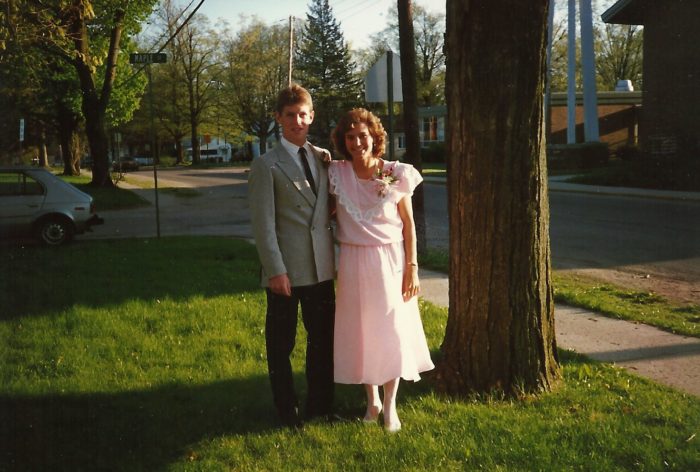
I recently came upon a .99 Kindle book called Home Truths that compiles eleven of J.C. Ryle’s tracts. Ryle lived from 1816-1900, so his tracts were not the kind you think of today but were more like little booklets that were fairly popular among believers back in the day.
If you have been around Growing4Life for any length of time, you will know that J.C. Ryle is, by far, one of my favorite writers. Even though he lived so many years ago, his gift of writing in a clear, easy-to-understand, and concise manner regarding Christian living is–in my opinion–unparalleled.
In the first chapter of this little booklet that is entitled “Are You Happy?”, he offers this wise counsel regarding finding happiness–
“To be truly happy a man must have sources of gladness which are not dependent on anything in this world. There is nothing upon earth which is not stamped with the mark of instability and uncertainty. All the good things that money can buy are but for a moment. They either leave us, or we are obliged to leave them. All the sweetest relationships in life are liable to come to an end. Death may come any day and cut them off. The man whose happiness depends entirely on things here below, is like him who builds his house on sand, or leans his weight on a reed.”*
And then in chapter 2, he goes into the roads we are so often tempted to travel as we search for happiness. As I read this chapter, I just knew that I had to share this here. I believe that almost all of us will find one or two of these that will be our weak spot(s). They will be the things that tempt us most to take a shortcut to happiness. And all of these–no matter which road we choose–inevitably leads us to emptiness. Just like a mirage in the dessert, we travel that road, get to the end, and then find ourselves standing by our tired and thirsty camels, staring at the hot, dry sand, and longing for fresh water more than ever.
I hope that this piece by Ryle challenges and encourages you. I actually had to cut a bit of it out because it was too long (hence the break-line) but if you want to read the whole thing, you can buy the Kindle book here. Some of the spelling is different because he lived in England in the 1800’s, so just keep that in mind, as well. And, so, without any further words from me, here are some very wise words from J.C. Ryle regarding the subject of finding happiness–
“There are several roads which are thought by many to lead to happiness. In each of these roads thousands and tens of thousands of men and women are continually travelling. Each fancies that if he could only attain all he wants he would he happy. Each fancies, if he does not succeed, that the fault is not in his road, but in his own want of luck and good fortune. And all alike seem ignorant that they are hunting shadows. They have started in a wrong direction. They are seeking that which can never be found in the place where they seek it.
Suffer me, reader, to mention by name some of the principal delusions about happiness. I do it in love, and charity, and compassion to your soul. I believe it to be a public duty to warn people against cheats, quacks, and impostors. Oh! how much trouble and sorrow it might save your heart, if you would only believe what I am going to say.
It is an utter mistake to suppose that rank and greatness alone can give happiness. The kings and rulers of this world are not necessarily happy men. They have troubles and crosses, which none know but themselves. They see a thousand evils, which they are unable to remedy. They are slaves working in golden chains, and have less real liberty than any in the world. They have burdens and responsibilities laid upon them, which are a daily weight on their hearts. The Roman Emperor Antonine often said, that “the imperial power was an ocean of miseries.” Queen Elizabeth, when she heard a milk-maid singing, wished that she had been born to a lot like her’s. Never did our great Poet write a truer word, than when he said,
“Uneasy lies the head that wears a crown.”
It is an utter mistake to suppose that riches alone can give happiness. They can enable a man to command and possess everything but inward peace. They cannot buy a cheerful spirit and a light heart. There is care in the getting of them, and care in the keeping of them, care in the using of them, and care in the disposing of them, care in the gathering, and care in the scattering of them. Oh! he was a wise man who said that “money” was only another name for “trouble,” and that the same English letters which spelt “acres” would also spell “cares.”
It is an utter mistake to suppose that learning and science alone can give happiness. They may occupy a man’s time and attention, but they cannot really make him happy. They that increase knowledge often increase sorrow. The more they learn, the more they discover their own ignorance. It is not in the power of things on earth or under the earth to “minister to a mind diseased.” The heart wants something as well as the head. The conscience needs food as well as the intellect. All the secular knowledge in the world will not give a man joy and gladness, when he thinks on sickness, and death, and the grave. They that have climbed the highest, have often found themselves solitary, dissatisfied, and empty of peace. The learned Selden at the close of his life confessed, that all his learning did not give him such comfort as four verses of St. Paul. Titus 2:11-14.
It is an utter mistake to suppose that idleness alone can give happiness. The labourer who gets up at five in the morning, and goes out to work all day in a cold clay ditch, often thinks, as he walks past the rich man’s door,” what a fine thing it must be to have no work to do.” Poor fellow! he little knows what he thinks. The most miserable creature on earth is the man who has nothing to do. Work for the hands or work for the head is absolutely essential to human happiness. Without it the mind feeds upon itself, and the whole inward man becomes diseased. The machinery within will work, and without something to work upon, will often wear itself to pieces. There was no idleness in Paradise. Adam and Eve had to “dress the garden and keep it.” There will be no idleness in heaven. God’s “servants shall serve Him.” Oh! be very sure the idlest man is the man most truly unhappy.
It is an utter mistake to suppose that pleasure-seeking and amusement alone can give happiness. Of all roads that men can take in order to be happy, this is the one that is most completely wrong. Of all weary, flat, dull, and unprofitable ways of spending life this exceeds all. To think of a dying creature, with an immortal soul, expecting happiness in feasting and revelling—in dancing and singing—in dressing and visiting—in ball-going and card-playing—in races and fairs—in hunting and shooting—in crowds, in laughter, in noise, in music, in wine! Surely it is a sight that is enough to make the devil laugh and the angels weep. Even a child will not play with its toys all day long. It must have food. But when grown up men and women think to find happiness in a constant round of amusement, they sink far below a child.
Reader, I place before you these common mistakes about the way to be happy. I ask you to mark them well. I warn you plainly against these pretended short cuts to happiness, however crowded they may be. I tell you that if you fancy any one of them can lead you to true peace, you are entirely deceived. Your conscience will never feel satisfied. Your immortal soul will never feel easy. Your whole inward man will feel uncomfortable and out of health. Take any one of these roads, or take all of them, and if you have nothing besides to look to, you will never find happiness. You may travel on and on and on, and the wished for object will seem as far away at the end of each stage of life as when you started. You are like one pouring water into a sieve, or putting money into a bag with holes. You might as well try to make an elephant happy by feeding him with a grain of sand a day, as try to satisfy that heart of your’s with rank, riches, learning, idleness, or pleasure.
Do you doubt the truth of all I am saying? I dare say you do. Then let us turn to the great book of human experience, and read over a few lines out of its solemn pages. You shall have the testimony of a few competent witnesses on the great subject I am urging on your attention.
A king shall be our first witness; I mean Solomon king of Israel. We know that he had power, and wisdom, and wealth, far exceeding that of any ruler of his time. We know from his own confession that he tried the great experiment, how far the good things of this world can make man happy. We know from the record of his own hand the result of this curious experiment.
He writes it by the inspiration of the Holy Ghost, for the benefit of the whole world, in the book of Ecclesiastes. Never, surely, was the experiment tried under such favourable circumstances. Never was any one so likely to succeed as the Jewish king. Yet what is Solomon’s testimony? You have it in his melancholy words, “all is vanity and vexation of spirit.” (Ecclesiastes 1:14)
———————–
Reader, I think it very likely that you do not believe what I am saying. I know something of the deceitfulness of the heart on the subject of happiness. There are few things which man is so slow to believe, as the truths I am now putting forth about the way to be happy. Bear with me then, while I say something more.
Come and stand with me some afternoon in the heart of the city of London. Let us watch the faces of most of the wealthy men, whom we shall see leaving their houses of business at the close of the day. Some of them are worth hundreds of thousands. Some of them are worth millions of pounds. But what is written in the countenances of these grave men whom we see swarming out from Lombard Street and Corn Hill, from the Bank of England and the Stock Exchange? What mean those deep lines which furrow so many a cheek and so many a brow? What means that air of anxious thoughtfulness which is worn by five out of every six we meet? Ah! reader, these things tell a tale. They tell us that it needs something more than gold and bank notes to make men happy.
Come next and stand with me near the Houses of Parliament, in the middle of a busy session. Let us scan the faces of peers and commoners, whose names are familiar and well-known all over the civilized world. There you may see on some fine May evening the mightiest statesmen in England hurrying to a debate, like eagles to the carcass. Each has a power of good or evil in his tongue which it is fearful to contemplate. Each may say things before to-morrow’s sun dawns which may affect the peace and prosperity of nations, and convulse the world. There you may see the men who hold the reins of power and government already. There you may see the men who are daily watching for an opportunity of snatching those reins out of their hands, and governing in their stead. But what do their faces tell from their care-worn countenances? What may be read in many of their wrinkled foreheads, so absent-looking and sunk in thought? Ah! reader, they teach us a solemn lesson. They teach us that it needs something more than political greatness to make men happy.
Come next and stand with me in the most fashionable part of London, in the height of the season. Let us visit Regent Street or Pall Mall, Hyde Park or May Fair. How many fair faces and splendid equipages we shall see! How many we shall count up in an hour’s time, who seem to possess the choicest gifts of this world—beauty, wealth, rank, fashion, and troops of friends! But alas! how few we shall see who appear happy! In how many countenances we shall read weariness, dissatisfaction, discontent, sorrow, or unhappiness, as clearly as if it was written with a pen. Yes! it is a humbling lesson to learn, but a very wholesome one. It needs something more than rank, and fashion, and beauty to make people happy.
Come next and walk with me through some quiet country parish in merry England. Let us visit some secluded corner in our beautiful old father-land, far away from great towns, and fashionable dissipation, and political strife. There are not a few such to be found in the land. There are rural parishes where there is neither street, nor public house, nor beershop—where there is work for all the labourers, and a church for all the population, and a school for all the children, and a minister of the Gospel to look after the people. Surely, you will say, we shall find happiness here! Surely such parishes must be the very abode of peace and joy!
Go into those quiet-looking cottages one by one, and you will soon be undeceived. Learn the inner history of each family, and you will soon alter your mind. You will soon discover that backbiting, and lying, and slandering, and envy, and jealousy, and pride, and laziness, and drinking, and extravagance, and lust, and petty quarrels, can murder happiness in the country quite as much as in the town. No doubt a rural village sounds pretty in poetry, and looks beautiful in pictures. But in sober reality human nature is the same evil thing everywhere. Alas! it needs something more than a residence in a quiet country parish, to make any child of Adam a happy man.
I know these are ancient things. They have been said a thousand times before without effect, and I suppose they will be said without effect again. I want no greater proof of the corruption of human nature than the pertinacity with which we seek happiness where happiness cannot be found. Century after century wise men have left on record their experience about the way to be happy. Century after century the children of men will have it, that they know the way perfectly well, and need no teaching. They cast to the winds our warnings. They rush every one on his own favourite path. They walk in a vain shadow and disquiet themselves in vain, and wake up when too late to find their whole life has been a grand mistake. Their eyes are blinded. They will not see that their visions are as baseless and disappointing as the mirage of the African desert. Like the tired traveller in those deserts, they think they are approaching a lake of cooling waters—Like the same traveller, they find to their dismay that this fancied lake was a splendid optical delusion, and that they are still helpless in the midst of burning sands.
Reader, are you a young-person? I entreat you to accept the affectionate warning of a minister of the Gospel, and not to seek happiness where happiness cannot be found. Seek it not in riches. Seek it not in power and rank. Seek it not in pleasure. Seek it not in learning. All these are bright and splendid fountains. Their waters taste sweet. A crowd is standing round them, which will not leave them. But, Oh f remember that God has written over each of these fountains, “He that drinketh of this water shall thirst again.” Remember this, and be wise.
Reader, are you poor? Are you tempted to fancy that if you had the rich man’s place you would be quite happy? Resist the temptation, and cast it behind you. Envy not your wealthy neighbours. Be content with such things as you have. Happiness does not depend on houses or laud. Silks and satins cannot shut out sorrow from the heart. Castles and halls cannot prevent anxiety and care coming in at their doors. There is as much misery riding and driving about in carriages as there is walking about on foot. There is as much unhappiness in ceiled houses as in humble cottages. Oh! remember the mistakes which are common about happiness, and be wise.”**
Don’t you find his words ring so very true?? So, of course, the question that begs to be asked by the world is: So what road do I take to happiness? We Christians should know this answer already, but I fear we still often find ourselves on one of the counterfeit shortcuts, despite our knowledge. Next time, I will share a bit of what Ryle has to say about where to find true happiness.
*Ryle, J.C. . Home Truths (Kindle Locations 111-116). E4 Group. Kindle Edition.
**Ryle, J.C. . Home Truths (Kindle Locations 141-286). E4 Group. Kindle Edition.









